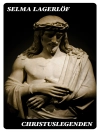On the Bondage of the Will was Martin Luther’s reply to Desiderius Erasmus’ work ’On Free Will, ’ which had appeared in 1524 as Erasmus’ first public attack on Luther after Erasmus had been wary about the methods of Luther for many years. At issue was whether human beings, after the Fall of Man, are free to choose good or evil. Erasmus had asserted that all humans possessed free will and that the doctrine of predestination was not in accord with the teachings contained in the Bible. Luther’s response was to reason that sin incapacitates human beings from working out their own salvation, and that they are completely incapable of bringing themselves to God. The debate between Luther and Erasmus is one of the earliest of the Reformation over the issue of free will and predestination.
Om författaren
Martin Luther (1483-1546) was a German professor of theology, composer, priest, monk, and a seminal figure in the Protestant Reformation. Luther came to reject several teachings and practices of the Roman Catholic Church. He strongly disputed the Catholic view on indulgences and he proposed an academic discussion of the practice and efficacy of indulgences in his famous Ninety-five Theses of 1517. Luther’s refusal to renounce all of his writings at the demand of Pope Leo X and the Holy Roman Emperor Charles V resulted in his excommunication by the Pope and condemnation as an outlaw by the Emperor.












